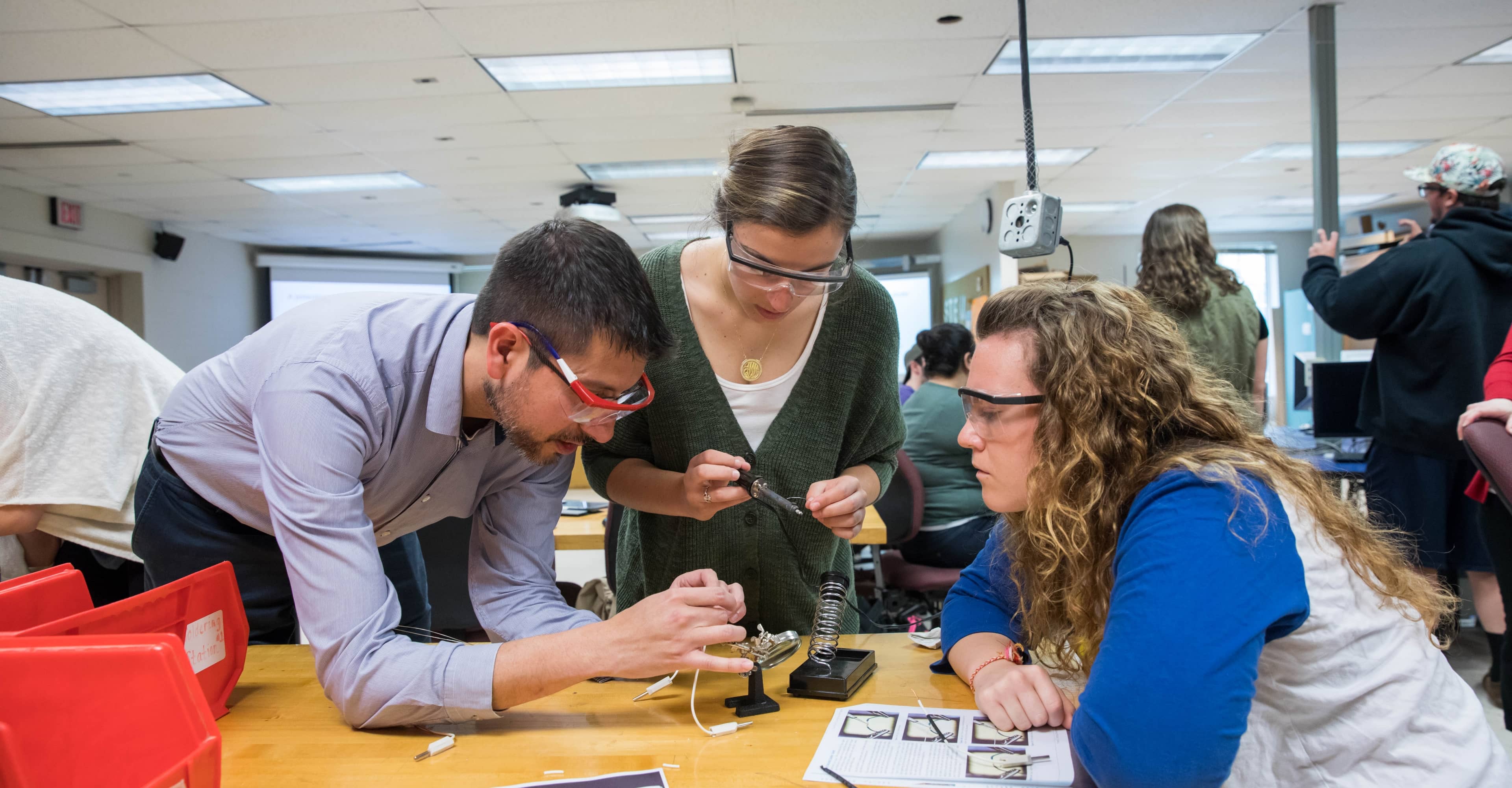Alternate path programs require two steps.
- Obtaining the Certificate of Eligibility (CE) that qualifies candidates for their initial positions as teachers by passing the 50-hour ALT 70 CE Preparation Course and providing evidence of proficiency in Physiology and Hygiene.
- Obtaining the Certificate of Eligibility with Advanced Standing (CEAS) by completing 350 hours of coursework that aligns with state requirements and providing evidence of two formal teaching evaluations where a supervisor has rated the candidate proficient or better.
ALT 70: CE Preparation Course (50 hours) This course provides the 50 pre-professional hours necessary to obtain the New Jersey Certificate of Eligibility (CE) for teaching and admission into an alternate route teacher certification program. Course material includes an overview of the teaching profession, the New Jersey Professional Teaching Standards, and the NJ Student Learning Standards. Major topics include legal and ethical aspects of education (i.e., the Individuals with Disabilities Education Act (IDEA), ADA’s Section 504, Individualized Education Plans (IEPs), New Jersey’s Anti-Bullying Bill of Rights and Harassment, Intimidation, and Bullying (HIB), Family Educational Rights and Privacy Act (FERPA), and mandatory reporting of child abuse and neglect. Aspiring teachers also learn backward lesson design that is aligned with standards, assessment of learning, basic instructional strategies, classroom management, and introductory differentiation strategies for students with differing language and literacy proficiencies. Ten hours of clinical experiences are provided through interactive simulations and/or field experiences.
CTE 71: CTE Alternate Route 1 (100 hours) The first semester of the CTE Alternate route course focuses on developing inclusive classrooms where all students are engaged in meaningful learning. The course develops understanding in the areas of adolescent development and how to create classroom communities with shared values and expectations, positive relationships with students, emotionally regulated learners, and a safe learning environment where all students are free from harassment, intimidation, and bullying. Cultural responsiveness is a major topic that involves reflection on personal biases and systemic factors that influence students in and out of school. As novice teachers gain experience with the NJ Career Readiness, Life Literacies, & Key Skills Standards and standards-based instructional practices, their learning is deepened in the areas of scaffolding, developing self-directed learners, teaching for understanding (e.g., relevance, inquiry, transfer, cross-disciplinary connections, addressing learner misconceptions), instructional technologies, and working with English learners. A key aspect of the first semester CTE experience is coaching from a TCNJ supervisor who visits the novice teacher regularly to observe instruction and provide feedback on teaching performance and professional dispositions. Through reflective practice and collaborative discussions, candidates will refine their teaching techniques, address challenges, and cultivate a deeper understanding of the teaching profession.
CTE 72: CTE Alternate Route 2 (100 hours) and CTE 73: CTE Alternative Route 3 (75 hours) These second semester CTE Alternate route courses focus on educating students with disabilities by developing inclusive classrooms, collaboratively differentiating instruction and assessments for students with disabilities in alignment with federal and state statutes and Universal Design for Learning (UDL). Major topics include the range of disabilities that may affect learners in your classroom, effective strategies for instructing and assessing students with disabilities, multi-tiered systems of support, assistive technologies, positive behavior supports, and evidence-informed instruction.
CTE 74: CTE Alternative Route 4 (75 hours) The fourth semester CTE Alternate route course focuses on developing literacy skills in the novice teacher’s content area with a primary focus on writing. Course topics include effectively helping students learn to write with technical proficiency, support claims with valid reasoning and evidence, and convey complex ideas through effective formatting, graphics, and multimedia. The course also addresses professional practice beyond the classroom by advocating for learners, collaborating with colleagues and families, seeking sources of ongoing professional learning, and contributing to the school, community, and profession. During the fourth semester CTE experience a TCNJ supervisor observes the novice teacher twice during the semester to provide feedback on teaching performance and professional dispositions. Through reflective practice and collaborative discussions, candidates will further refine their teaching techniques, address challenges, and cultivate a deeper understanding of the teaching profession.
CTE 80 (0 hours) This course verifies that the candidate has two proficient formal performance evaluations from their school principal and eligibility for licensure.

